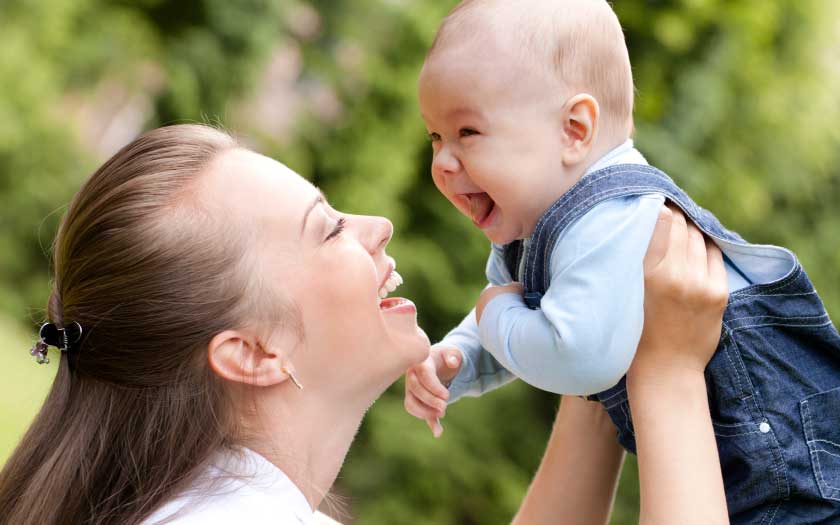If you’re surprised that your baby seems to demonstrate strong feelings of affection and attachment, we’re about to surprise you even more. Find out what we mean.
A baby begins to form deep, loving bonds with the person(s) closest to them from a very early age, even before said child can verbally express any likes or dislikes. Be it with their birth mothers or adoptive moms, babies tend to form a strong emotional bond with the person who spends the most time with them. Since moms are the ones who usually tend to their babies’ needs the most, a bond is established in no time. If you happen to be such a mom, all of this love and affection comes right back to you when your baby gurgles and reaches out to you whenever you’re near.
Baby love
Although at first infants will seem to have limited capabilities to show affection, by the time they reach their eight months, things will likely change. That’s also the time when stranger anxiety sets in for most babies. If your baby is one of them, you’ll notice that when a relative, friend, or anyone else that baby has never met before carries your little one, he’ll start wailing for you. This phase will not last and will lessen over time. It’s important to understand this and not worsen the situation by showing displeasure at your little one’s behaviour. What a baby with stranger anxiety needs is to feel safe and secure knowing that mom or dad is always at hand for him while he explores relationships with others around him.
Around the same time, your baby might start to show appreciation and affection for other babies too, especially if he already knows them and has been spending time with them. Watch closely and you may notice that your little one seems excited when he sees a friend, or he may even seem to make a fuss to see that friend leave. If your baby is mobile and can crawl, he may try to make his way to a baby he knows.
Soon, your little one will learn affectionate behaviors such as kissing for you and as he repeats these gestures on others and gets positive responses, he’ll become more aware of what pleases others and what doesn’t. You’ll find too that little ones learn how to use these to their advantage very quickly, be it to pacify a friend or to win a parent’s heart.
Little chums
Although parents of toddlers will readily declare that toddlerhood is one of the more challenging phases of childhood to deal with, they’ll probably also find that one of the most heartwarming things to witness is when their little one makes new friends and delights in the company of others. Parents must keep encouraging the habit of making friends and being friendly with others. As the play with others, the need for kindness and cooperation, for instance, will arise, so this will be the best time actually, to inculcate these virtues together with empathy, sharing, taking turns at playing certain toys, etc. Studies show that the earlier kids learn to form positive relationships, the better they are at relating to others as teenagers and adults.
Every child develops differently though, and parents have to keep this in mind, especially if they’re dealing with a shy or temperamental child. Not all toddlers are little social butterflies and some may take some time to warm up to even one friend!
I like you!
In a research at Ohio State University in Columbus, it was discovered that a toddler’s way of saying “I like you” during play is likely to come in the form of mimicking a friend’s behavior.
Encouraging healthy social behaviour
Toddlers are still toddlers and parents have to understand that regardless of how much a toddler like a playmate, they may still grab his toys, throw tantrums, refuse to share, etc. It can all too easy to look down at another parent for the way their child is acting without realising that everyone, including toddlers, can only learn to be better (or in this case, taught to behave better) by making mistakes. Of course, parents themselves have to take on an active role in dealing with their little one’s social encounters through gentle, persuasive guidance.


